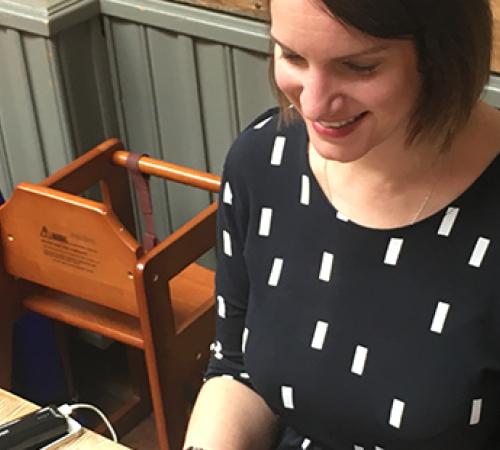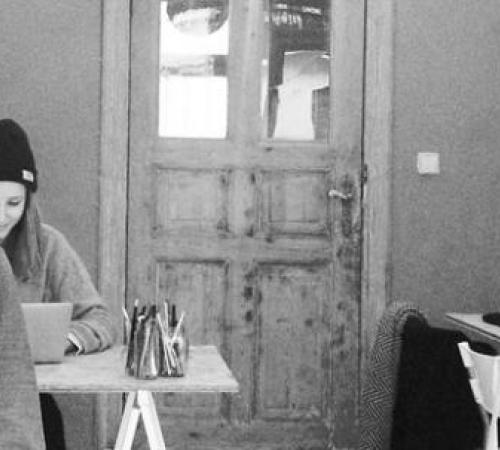
Small Business Stars: Sara Teiger PR

This week’s Small Business Star is Sara Teiger, a Manchester-based freelance PR consultant who works with a wide range of clients around the UK.
Sara began her freelance career in January 2001 after she became disillusioned with the way traditional PR agencies operated.
Here she talks about how her desire to give clients the best value for money led her to set up as a freelancer.
1. It was only a few days before the first piece of work came in
“Before I struck out on my own, I worked for PR agencies for several years and also did a stint as a marketing manager.
“I have strong opinions on how to service clients, based on honesty and transparency and I didn’t like the way that the PR agencies I worked for operated. My main bugbear was when an agency promised the earth to a client, then failed to deliver. It’s the poor junior members of staff who are left to deal with the disillusioned, and often angry, client.
“I regularly found myself having to bite my tongue. One day I had an argument with my boss and walked out. I started freelancing the next day as I had a mortgage to pay, having recently bought my first house.
“I got on the phone and rang everybody I knew to tell them that I was now freelancing. Work came in, slowly at first, but it was only a few days before the first piece of work came in.”
2. I don’t promise to help people if I know I can’t
“There’re a lot of freelance PRs out there doing what I do. But the way my service is unique is that I don’t specialise. I have a wide range of clients. For example, I’m currently working with a luxury country house hotel, a leadership development company, two early stage franchisors, a manufacturer of window blind accessories, and a mortgage broker.
“I can get my head around a new industry and its language very quickly and this helps with motivation as I’m always learning new things. And it means I love doing what I do as much today as I did when I first started.
“I’m very honest and open and focused on giving value. I’m not greedy and don’t promise to help people if I know I can’t. I turn clients away if I can’t help them and have cancelled contracts in cases where I don’t think I’m providing value for money.
“One client was very upset when I called to say I didn’t think things were working as he was perfectly happy with the service I was providing. The client was retained (their choice) and I didn’t feel there was anyone at the company who could put the time into working effectively with me.
“We were making very little progress as nobody ever returned my calls or answered my queries. In effect, his was paying money for nothing so I terminated the contract for his own sake.”
3. I’ve learned to turn down work when I get too busy
“There have been times when I’ve taken on too much work and have had to sub-contract it out. When I did that I found that I spent all of my time managing people and not doing the work.
“This didn’t suit me as I don’t really like managing people. I paid them fairly which meant that I didn’t really make any money. So I’ve learned to turn down work when I get too busy.”
4. I took the risk of renting office space after I’d worked at home for a couple of years
“I have taken risks. Going freelance shortly after I’d bought my first home was a risk. I also took the risk of renting office space after I’d worked at home for a couple of years. I moved into a shared office above a pub with other freelancers.
“This was great, but meant I had an overhead that hadn’t been there before. And that overhead had to be paid even during a quiet month.”
5. I know people who try and cover up the fact that they work at home with children
“Once I had children it made sense to work from home again. I organised my maternity leave by taking on some writing assignments and then handing over my clients to freelancers that I knew well and trusted. This enabled me to keep the business ticking over.
“Until my youngest child goes to school I’ll work part-time. She’s at nursery in the morning and with me in the afternoons, which pushes me towards evening work at the moment. When she goes to school I’ll move closer to full-time work.
“I know people who try and cover up the fact that they work at home with children. I used to do it myself in the early days, but now I have the confidence to admit I have a toddler at home and nobody minds.”
6. Having a network means I don’t feel out on a limb
“One of the few disadvantages of my way of working is not having office mates to chat an idea through with. But I’m very well networked with other freelancers and I think we inspire each other. Knowing other people who do what I do means I don’t feel out on a limb.
“There’s plenty of work around which means we’re co-operative rather than competitive and I pass on work to other freelancers if I’m too busy and I get referrals this way too. What goes around comes around.
“I like to have a real network of people rather than a virtual network, though I have met people through social media too. But when this has happened it’s usually been as a way to make contact which turns into a meeting in real life.”
To learn more from fellow business owners, check out Small Business Stars, a series featuring you – the entrepreneurs making things happen. Support and advice are key pillars for a successful, fast growing business. Find out how Hiscox insurance can support you, get information on the right commercial cover for you or get a quick public liability insurance quote today.
Disclaimer:
At Hiscox, we want to help your small business thrive. Our blog has many articles you may find relevant and useful as your business grows. But these articles aren’t professional advice. So, to find out more on a subject we cover here, please seek professional assistance.






